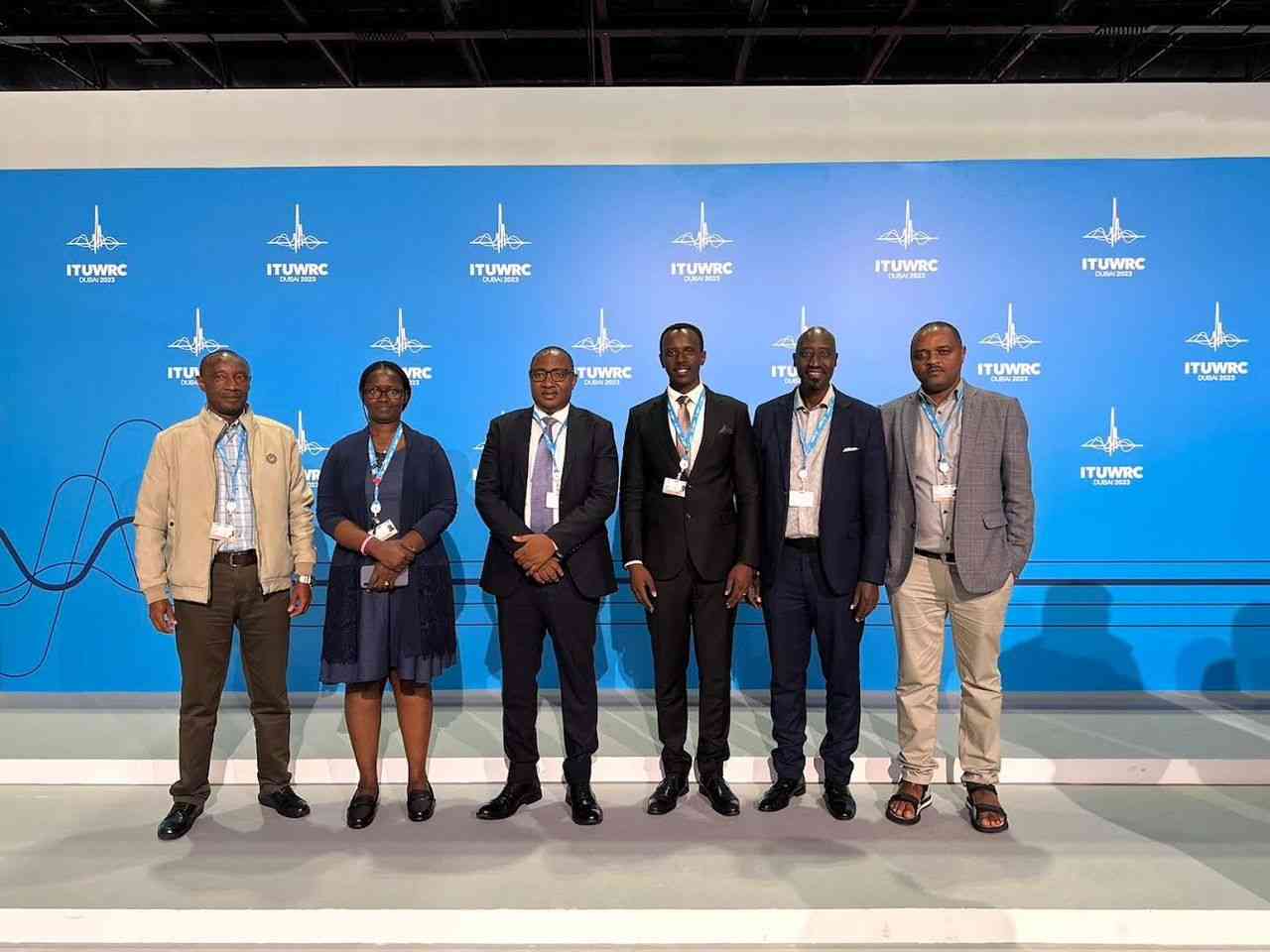
Did you know that from 2000 to 2007 the International Telecommunication Union (ITU) allocated two orbits per country to ensure each country had its own space around the Geostationary belt for satellites?
Before you get too excited, did you also know that over the years, those orbits, for most African countries including Rwanda (that was 110 E), were encroached upon and ended up becoming completely unusable?
That was until the recently concluded World Radiocommunication Conference that took place in Dubai, UAE, which approved the registration of a new Satellite Orbit for Rwanda located at 9.20 W, together with thirty other African countries –members of the ITU– to gain international recognition and protection.

Now you can get excited.
Rwanda, along with thirty other African countries, has successfully regained its slot in space, which means these African nations are officially recognized and protected internationally by the international space community.
But why is this so important?
Space is vast, but the Geostationary space where satellites stay fixed in position, is limited.
- MUCKRAKER: The grapes are sour anyway
- Govt curbs human trafficking
- Rwanda MPs oppose contraceptives for 15 year olds
- Don’t meddle in Rwanda politics, Zim teachers warned
Keep Reading
This special belt around the Equator, 36,000 km above the Earth, is where most communication and broadcasting satellites are.
Rwanda’s regain of its slot on this special belt is an unparalleled opportunity, as these orbits are extremely valuable, worth millions of US dollars.
This comes to solve the biggest issue that African countries with space ambitions were faced with.
For instance, some countries could not launch communication or broadcasting satellites even if they had the funds because they lacked an orbit around the Geostationary belt.
The ITU Radio Regulations and the extensive use of the Geostationary belt made it challenging to find a slot since there is a satellite or a reserved slot for a specific country at every 0.20.
With Rwanda securing its place, it opens doors for the country to launch its own satellite when needed.

Thanks to advancing technology, the cost of launching a satellite has decreased, making it more accessible to countries in the Southern Hemisphere.
This achievement did not happen overnight. It was a result of a journey that started in 2016, led by Georges Kwizera, the Chief Technology Officer at Rwanda Space Agency, who was awarded the Global Impact Award by the African Telecommunication Union for his leadership in this effort.
This win is a significant step for Africa to excel in the satellite industry.
African countries can now afford to think long-term when it comes to space investment because their slots in space are protected by ITU Radio Regulations.
Moreover, we can go a step further into materializing the harnessing of space technologies and resources for the benefit of the whole continent and humanity.
Who knows? Maybe soon, Rwanda and other African countries might collaborate and use their orbital resources to launch a single, economically viable satellite that meets all their needs.
The sky is no longer the limit for Africa!







